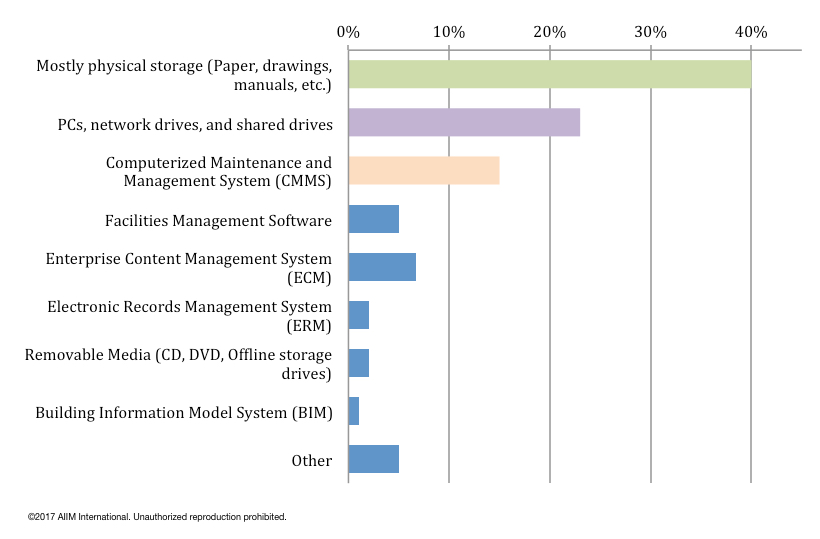
Image by: Three Images, ©2017 Getty Images
How prepared are you for a disaster? As we leave hurricane season behind us and make way for the winter storms ahead, consider that a disaster can also include a burst water pipe, fire, wind, and other forms of chaos.
Disasters cannot be prevented, but we can be—and must be—ready for them. This is called emergency preparedness, and it directly applies to facilities management. For those of us in information management, we also need to take this into consideration. We have to ensure there are contingency plans in place for the storage and protection of records, documents, and information that are foundational to facility operations.
A recent study by AIIM titled “Information Management for Facilities and Operations: Knowing Your Gaps is Key to Catastrophe Preparedness” shows that 40% of respondents still store their facilities, operations, and engineering documents in a physical form, while 23% store their digital files on PCs, network drives, and shared drives.

Respondents in a recent AIIM survey were asked how they currently manage their facilities, operations, and engineering documents related to their buildings and plant maintenance and equipment.
The question is, "In times of disaster, are they accessible? What are the processes for retrieving this information in response to a disaster?"
In My View
Disasters can strike at any time and can take many forms. While we can't predict the level of destruction, we can prepare as best as we can to react and respond when it does happen. As information professionals, this means that we should have our information and processes at the ready—wherever and whenever we need it. In other words, information that is digitally accessible in the cloud using mobile devices would be ideal.There will be times when this may not be a viable solution, as is the current situation with Puerto Rico. However, with the use of generators and the availability of Internet in the major cities, it would be the best approach for a quick recovery, especially if no one knows where the physical documents eventually wound up. Think it won’t impact you? Think again. Only this time, think like it will.
Bob Larrivee is Vice President and Chief Analyst of Market Intelligence at AIIM and an internationally recognized subject matter expert and thought leader with over 30 years of experience in the fields of information and process management. Follow him on Twitter @BobLarrivee.







